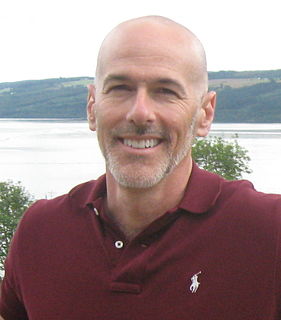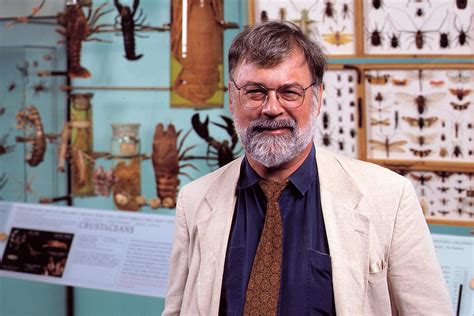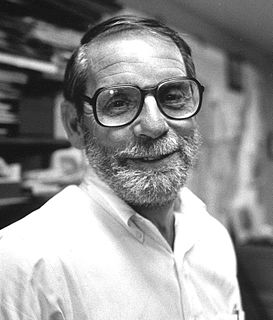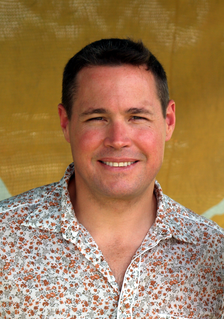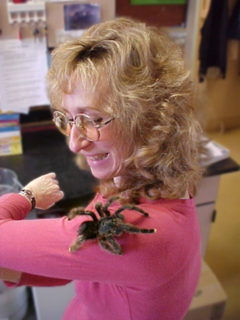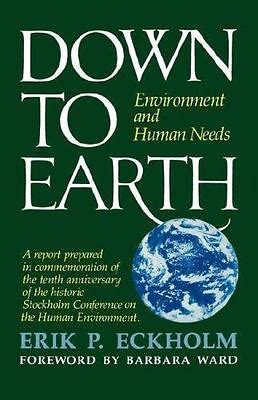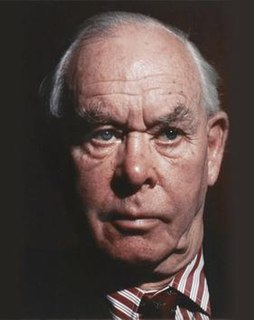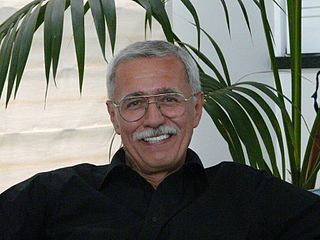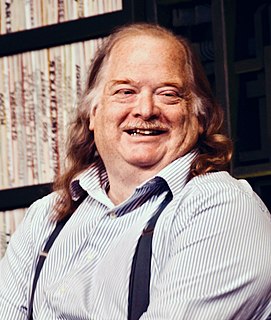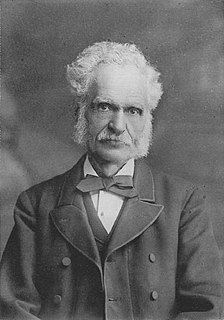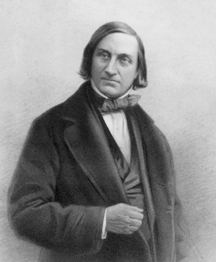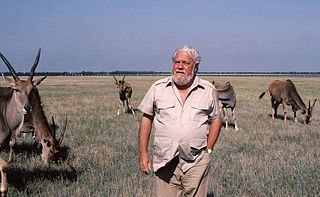Top 1200 Species Quotes & Sayings - Page 4
Explore popular Species quotes.
Last updated on November 22, 2024.
For a long time, science has gone in the direction of sort of putting people in their place. We learned that the sun doesn't revolve around the Earth, the Earth revolves around the sun; we learned that we're just another species, evolved, like all other species, so we're just another animal, really.
Through my love for you, I want to express my love for the whole cosmos, the whole of humanity, and all beings. By living with you, I want to learn to love everyone and all species. If I succeed in loving you, I will be able to love everyone and all species on Earth... This is the real message of love.
Other countries may boast of this and that, but nobody can touch the United States for poisonous snakes. We have about twenty species, most of them deadly, and Europe has only five or six, none of them much good. We have fifteen kinds of Rattlesnakes alone and nobody else has even one. [Footnote: There is a species in Central and South America, but it probably came from here.]
On the whole, at least in the author's experience, the preparation of species-specific antiserum fractions and the differentiation of closely related species with precipitin sera for serum proteins does not succeed so regularly as with agglutinins and lysins for blood cells. This may be due to the fact that in the evolutional scale the proteins undergo continuous variations whereas cell antigens are subject to sudden changes not linked by intermediary stages.
Acoustic ecology is the study of information systems: the shared acoustic environment and how species send and receive messages in this shared acoustic environment. What these messages mean - meaning, what are the consequences and the changes of behavior in any species. And it has as much to do with us individually and biologically as it does with the shaping of cultures and beliefs.
As kings are begotten and born like other men, it is to be presumed that they are of the human species; and perhaps, had they thesame education, they might prove like other men. But, flattered from their cradles, their hearts are corrupted, and their heads are turned, so that they seem to be a species by themselves.... Flattery cannot be too strong for them; drunk with it from their infancy, like old drinkers, they require dreams.
Human beings are not inevitable, and our brief existence is not preordained to be extended into the distant future. If Homo sapiens is to have a continued presence on earth, humankind will reevaluate its sense of place in the world and modify its strong species-centric stewardship of the planet. Our collective concepts of morality and ethics have a direct impact on our species' ultimate fate.
Paleontologists ever since Darwin have been searching (largely in vain) for the sequences of insensibly graded series of fossils that would stand as examples of the sort of wholesale transformation of species that Darwin envisioned as the natural product of the evolutionary process. Few saw any reason to demur - though it is a startling fact that ...most species remain recognizably themselves, virtually unchanged throughout their occurrence in geological sediments of various ages.
We live in this irreparably broken world, and I don't wish to deny reality, but the amazing thing to me is not that we refuse to relinquish hope as a species. The amazing thing is that we're right to hold on to hope. The world may be broken, but hope is not crazy. ... Obviously not all stories end happily. We don't always have good fortune, but hope gives us, as a species and as individuals, what we otherwise wouldn't have: A chance.
Human beings never think for themselves. For the most part, members of our species simply repeat what they are told - and become upset if they are exposed to any different view. The characteristic human trait is not awareness but conformity. We are stubborn, self-destructive conformists. Any other view of our species is just a self-congratulatory delusion.
The several difficulties here discussed, namely our not finding in the successive formations infinitely numerous transitional links between the many species which now exist or have existed; the sudden manner in which whole groups of species appear in our European formations; the almost entire absence, as at present known, of fossiliferous formations beneath the Silurian strata, are all undoubtedly of the gravest nature.
If there is a species which is more maltreated than children, then it must be their toys, which they handle in an incredibly off-hand manner. Toys are thus the end point in that long chain in which all the conditions of despotic high-handedness are in play which enchain beings one to another, from one species to another --cruel divinities to their sacrificial victims, from masters to slaves, from adults to children, and from children to their objects.
On the geological time scale, a human lifetime is reduced to a brevity that is too inhibiting to think about deep time. ... Geologists ... see the unbelievable swiftness with which one evolving species on the Earth has learned to reach into the dirt of some tropical island and fling 747s across the sky ... Seeing a race unaware of its own instantaneousness in time, they can reel off all the species that have come and gone, with emphasis on those that have specialized themselves to death.
I just wonder what it would be like to be reincarnated in an animal whose species had been so reduced in numbers than it was in danger of extinction. What would be its feelings toward the human species whose population explosion had denied it somewhere to exist. I must confess that I am tempted to ask for reincarnation as a particularly deadly virus.
We need to radically and intelligently reduce human populations to fewer than one billion. We need to eliminate nationalism and tribalism and become Earthlings. And as Earthlings, we need to recognize that all the other species that live on this planet are also fellow citizens and also Earthlings. This is a planet of incredible diversity of life-forms; it is not a planet of one species as many of us believe.
What I'm starting to really grapple with, as someone who likes to tell stories, is that humans more than any other animal species seem open and willing to control, assert dominance, and behave cruelly. That's a whole kind of new nightmare to really have to face about your own species. That we are, in some respects, cannibalistic, in that we are willing to destroy ourselves. That's really something for me to be exploring over the long haul.
At last gleams of light have come, and I am almost convinced (quite contrary to opinion I started with) that species are not (it is like confessing a murder) immutable. Heaven forfend me from Lamarck nonsense of a 'tendency to progression', 'adaptations from the slow willing of animals', &c! But the conclusions I am led to are not widely different from his; though the means of change are wholly so. I think I have found out (here's presumption!) the simple way by which species become exquisitely adapted to various ends.
Without birds to feed on them, the insects would multiply catastrophically. The insects, not man or other proud species, are really the only ones fitted for survival in the nuclear age. The cockroach, a venerable and hardy species, will take over the habitats of the foolish humans, and compete only with other insects or bacteria.
Savages have often been likened to children, and the comparison is not only correct but also highly instructive. Many naturalists consider that the early condition of the individual indicates that of the race,-that the best test of the affinities of a species are the stages through which it passes. So also it is in the case of man; the life of each individual is an epitome of the history of the race, and the gradual development of the child illustrates that of the species.
There is a beginning and end to all life - and to all human endeavors. Species evolve and die off. Empires rise, then break apart. Businesses grow, then fold. There are no exceptions. I'm OK with all that. Yet it pains me to bear witness to the sixth great extinction, where we humans are directly responsible for the extirpation of so many wonderful creatures and invaluable indigenous cultures. It saddens me to observe the plight of our own species; we appear to be incapable of solving our problems.
The ruling British elite are like animals--not only in their morality, but in their outlook on knowledge. They are clever animals, who are masters of the wicked nature of their own species, and recognize ferally the distinctions of the hated human species. Nonetheless, obsessively dedicated to being such animals, they can not [sic] assimilate those qualities unique to true human beings.
Genius detects through the fly, through the caterpillar, through the grub, through the egg, the constant individual; through countless individuals the fixed species; through many species the genus; through all genera the steadfast type; through all the kingdoms of organized life the eternal unity. Nature is a mutable cloud which is always and never the same.
Abraham Maslow said that the fully realized person transcends his local group and identifies with the species. But the election of Ronald Reagan might've been the beginning of my giving up on my species. Because it was absurd. To this day it remains absurd. More than absurd, it was frightening: it represented the rise to supremacy of darkness, the ascendancy of ignorance.
Vampires as creatures have evolved over time as different vampire bloodlines have hit different populations of humans. Every once in a while the blood will make something new and mutate into a new species with different powers, abilities, weakness, physical characteristics, and so on. I don't want to give anything away, but there are whole species and branches that date all the way back to pre-modern times.
Great problems are now being handled, keeping every thinking man in suspense; the unity or multiplicity of human races; the creation of man 1,000 years or 1,000 centuries ago; the fixity of species, or the slow and progressive transformation of one species into another; the eternity of matter; the idea of a God unnecessary: such are some of the questions that humanity discusses nowadays.
Many scientists would argue that we are now in what is called Extinction, and it's caused by this perfect extinction storm: climate change, habitat loss, pollution, unsustainable exploitation of species and habitat resources, and of course, human population explosion. All of these factors work together and conspire to drive a species to extinction on our planet, every half an hour.
It was not that I disliked people; some of them were interesting and kind. But even the nice ones were no more compelling or important to me than other creatures. Then, as now, to me humans are but one species among billions of other equally vivid and thrilling lives. I was never drawn to other children simply because they were human. Humans seemed to me a rather bullying species, and I was on the side of the underdog.
I've argued that many of what philosophers call moral sentiments can be seen in other species. In chimpanzees and other animals, you see examples of sympathy, empathy, reciprocity, a willingness to follow social rules. Dogs are a good example of a species that have and obey social rules; that's why we like them so much, even though they're large carnivores.
My feeling is that Darwinism is only at best a partial solution, and an extremely dangerous partial solution. I would say, based on the little I know, Darwinism explains microevolution within species quite well. As to its broader consequence and implications, I don't think it explains individual species evolution at all well.
The widespread abuse of prisoners is a virtually foolproof indication that politicians are trying to impose a system--whether political, religious or economic--that is rejected by large numbers of the people they are ruling. Just as ecologists define ecosystems by the presence of certain "indicator species" of plants and birds, torture is an indicator species of a regime that is engaged in a deeply anti-democratic project, even if that regime happens to have come to power through elections.
One animal or plant species may become extinct every hour. All species are doomed to extinction, but man through worldwide development/killing animals for food/profit/using toxic chemicals such as pesticides/industrial wastes, will accelerate the extinction of plants/animals and the result will be a more hostile environment for man.
Thus, just as animals of many species, including man, are disposed to respond with fear to sudden movement or a marked change in level of sound or light because to do so has a survival value, so are many species, including man, disposed to respond to separation from a potentially caregiving figure and for the same reasons.
The medical argument for animal testing doesn't stand up. Even if it did, I don't think we should kill other species. We think we're so much better; I'm not sure we are. I tell people, We've beaten into submission every animal on the face of the Earth, so we are the clear winners of whatever battle is going on between the species. Couldn't we be generous? I really do think it's time to get nice. No need to keep beating up on them. I think we've got to show that we're kind.
Diversity is a survival factor for the community itself. A community of a hundred million species can survive anything short of total global catastrophe. Within that hundred million will be thousands that could survive a global temperature drop of twenty degrees—which would be a lot more devastating than it sounds. Within that hundred million will be thousands that could survive a global temperature rise of twenty degrees. But a community of a hundred species or a thousand species has almost no survival value at all.
Animals are not just other species. They are other nations. And we murder them at our peril. The peace map is drawn on a menu. Peace is not just the absence of war. It is the presence of Justice. Justice must be blind to race, color, religion or species. If she is not blind, she will be a weapon of terror.
To the mind which looks not to general results in the economy of Nature, the earth may seem to present a scene of perpetual warfare, and incessant carnage: but the more enlarged view, while it regards individuals in their conjoint relations to the general benefit of their own species, and that of other species with which they are associated in the great family of Nature, resolves each apparent case of individual evil, into an example of subserviency to universal good.
The theory of natural selection is the centerpiece of The Origin of Species and of evolutionary theory. It is this theory that accounts for the adaptations of organisms, those innumerable features that so wonderfully equip them for survival and reproduction; it is this theory that accounts for the divergence of species from common ancestors and thus for the endless diversity of life. Natural selection is a simple concept, but it is perhaps the most important idea in biology.
I think the point of obsession with food means we're healthy as a species. When we're hungry, everything tastes good, hunger is the best spice. When you're in a area that has few resources, you work incredibly hard to have something. And then you make the something taste good. The greatest food in the world comes from the inventiveness of great privation. What emerges is all the miraculous fermentations and all the strong flavors. You put it together in the right way, it's delicious. That defines survival, and our human species.
Most people are surprised when they hear my somber figures: we know of 2 million species of plants, animals and microorganisms, and we can give them each a scientific name and a diagnostic description. We know, perhaps generously, more than just a little bit of the anatomy in no more than 10 percent. We have done thorough studies in fewer than one-tenth of 1 percent. And the total number of species on Earth is unknown to the nearest order of magnitude.
Humanity is a biological species, living in a biological environment, because like all species, we are exquisitely adapted in everything: from our behavior, to our genetics, to our physiology, to that particular environment in which we live. The earth is our home. Unless we preserve the rest of life, as a sacred duty, we will be endangering ourselves by destroying the home in which we evolved, and on which we completely depend.
Evolutionary biologists often avoid using the term "race" because there is so much racist baggage that comes with the term. However, they are often okay with the idea that the genealogy of human groups within our species can sometimes be inferred in much the same way as the genealogy of different species.
When I was very young, biology, the diversity of life, was one of my main interests. I know there's this image people have that I'm this spoiled, cocky punk of an actor. Honestly, that's not who I am. I really care that so many species have been wiped out, like genocide of entire races. I believe in the divine right of all species to survive on this planet. So I decided I want to be active as an environmentalist. I learned. I asked experts. I got active.
... on these expanded membranes [butterfly wings] Nature writes, as on a tablet, the story of the modifications of species, so truly do all changes of the organisation register themselves thereon. Moreover, the same colour-patterns of the wings generally show, with great regularity, the degrees of blood-relationship of the species. As the laws of nature must be the same for all beings, the conclusions furnished by this group of insects must be applicable to the whole world.
Looking around the world at these wildlife, it's abundantly clear that humans have benefited from nature in so many ways but have also brought many species to the brink of extinction...The American people that I interact with through my IS Foundation work do not want to allow this to happen; they do not want to let these species go without a fight; and they see the way in which nature provides for people around the world.
Palaeontological research exhibits, beyond question, the phenomenon of provinces in time, as well as provinces in space. Moreover, all our knowledge of organic remains teaches us, that species have a definite existence, and a centralization in geological time as well as in geographical space, and that no species is repeated in time.
You cannot begin to preserve any species of animal unless you preserve the habitat in which it dwells. Disturb or destroy that habitat and you will exterminate the species as surely as if you had shot it. So conservation means that we have to preserve forest and grassland, river and lake, even the sea itself. This is vital not only for the preservation of animal life generally, but for the future existence of man himself - a point that seems to escape many people.
That's the way to get young people. Once they see there are wonderful things to hunt for, to rediscover a species that was thought to be extinct or is extremely rare, to be the first to see a nest, to discover a new species unsuspected close to your home - these are things, I think, with a little education and excitement and the right kind of natural history would actually start a movement that makes going back to nature a profitable adventure.
Somewhere close I knew spear-nosed bats flew through the tree crowns in search of fruit, palm vipers coiled in ambush in the roots of orchids, jaguars walked the river's edge; around them eight hundred species of trees stood, more than are native to all of North America; and a thousand species of butterflies, 6 percent of the entire world fauna, waited for the dawn.
Our species is the only creative species, and it has only one creative instrument, the individual mind and spirit of man. Nothing was ever created by two men. There are no good collaborations, whether in music, in art, in poetry, in mathematics, in philosophy. Once the miracle of creation has taken place, the group can build and extend it, but the group never invents anything. The preciousness lies in the lonely mind of a man.
If new species arise very rapidly in small, peripherally isolated local populations, then the great expectation of insensibly graded fossil sequences is a chimera. A new species does not evolve in the area of its ancestors; it does not arise from the slow transformation of all its forbears.
co-author with Niles Eldridge
Years later, my wife, Ilusion, woke me up to the realization that you can't just "dump" your whole species simply because you've had a few bad encounters with some of its members. ... Intimacy's a greater goal to seek. ...That true knowledge of intimacy within our own species will allow us to pass it along to interspecies relations.
Having studied biology really helped me a lot because I quickly understand how biological systems work, and how they fail, and the tragedy of when they fail, because we are dealing with life systems, and when we hear that a species has become extinct, or is threatened, you realize that this could mean that this species will disappear from the face of the earth forever! So that understanding really gives you energy to do something to save it.
We have seen that blood united to blood in the case of but remotely connected species of animals, kills; blood united to blood in the case of more closely allied species of animals does not kill. The physical organism of man survives when strange blood comes in contact with strange blood, ... but clairvoyant power perishes under the influence of this mixing of blood, or exogamy.







